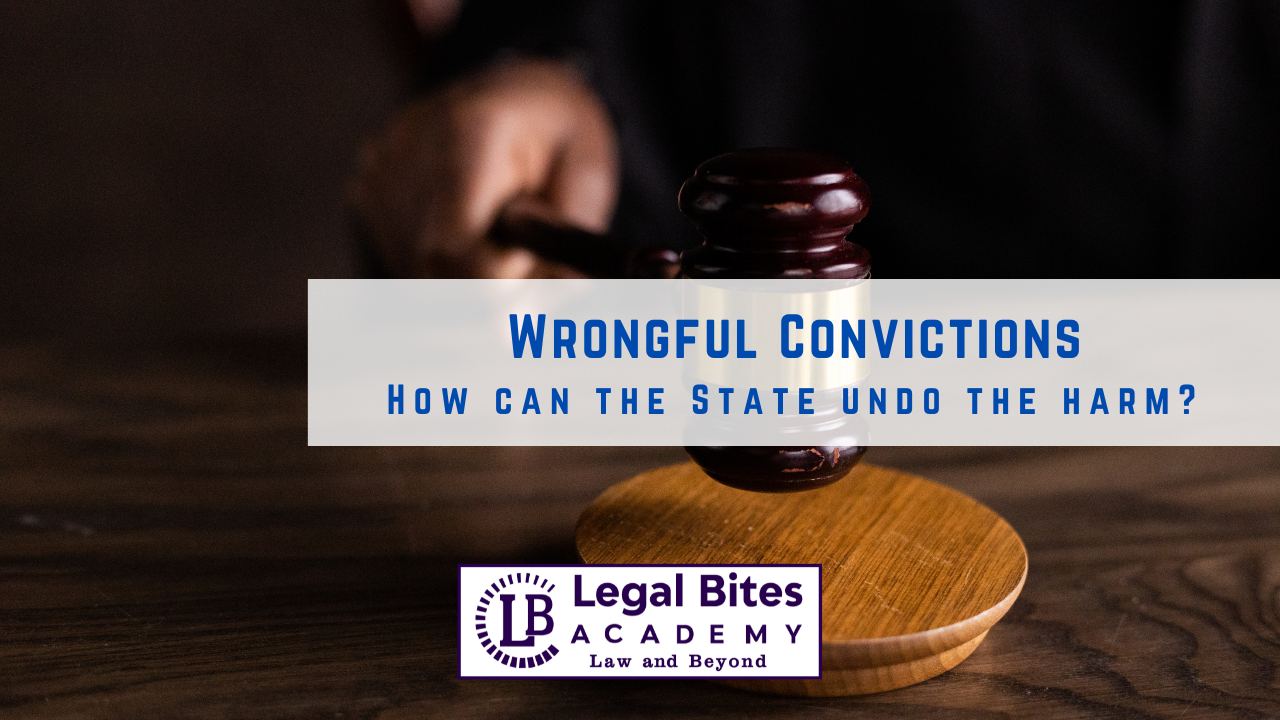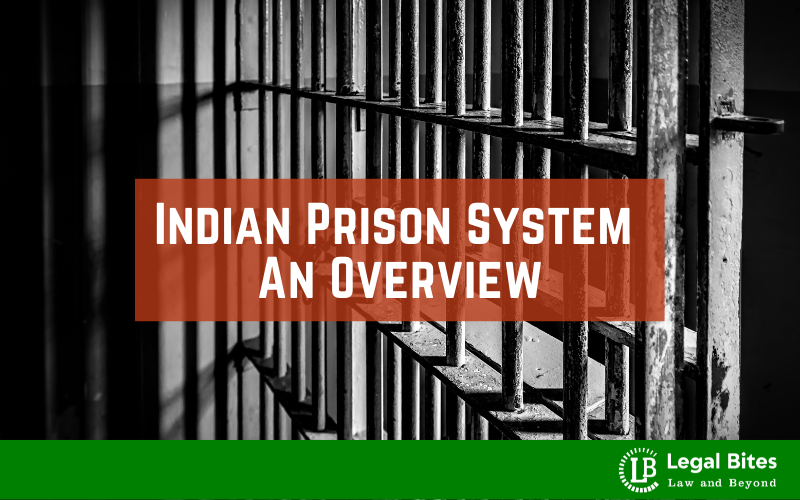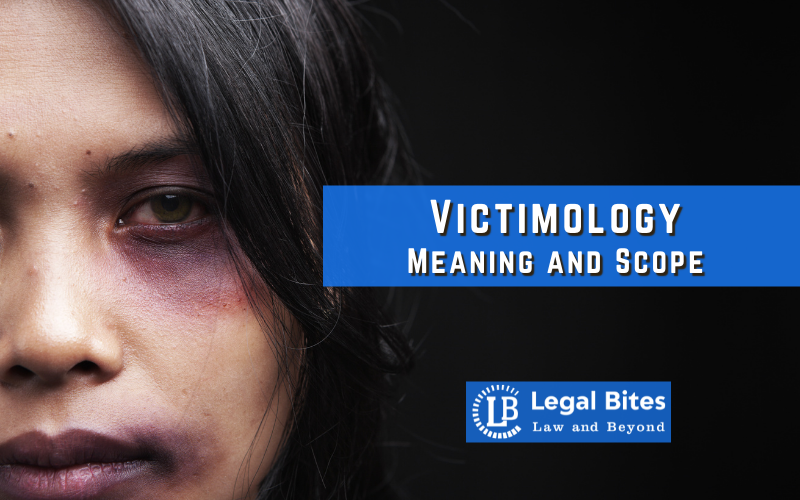Wrongful Convictions: How can the State undo the harm?
Wrongful convictions serve unwarranted punishment to the alleged accused and pose serious damage to their life. This article talks about wrongful convictions and the extent of it with a special focus on the matter as to how the state can undo the harm flown out of wrongful convictions. To discuss so, the article deals with the causes that… Read More »
;
Wrongful convictions serve unwarranted punishment to the alleged accused and pose serious damage to their life. This article talks about wrongful convictions and the extent of it with a special focus on the matter as to how the state can undo the harm flown out of wrongful convictions. To discuss so, the article deals with the causes that contribute to it, frequency of occurrence, and suggestive reform that could be brought to reduce the number of wrongful convictions in the country, with...
Wrongful convictions serve unwarranted punishment to the alleged accused and pose serious damage to their life. This article talks about wrongful convictions and the extent of it with a special focus on the matter as to how the state can undo the harm flown out of wrongful convictions. To discuss so, the article deals with the causes that contribute to it, frequency of occurrence, and suggestive reform that could be brought to reduce the number of wrongful convictions in the country, with the help of relevant landmark judgments.
I. Introduction
The establishment of the Indian Criminal Justice System is based on certain fundamental maxims and beliefs. One such belief of the justice administration is that ‘Let hundred guilty be acquitted but once innocent should not be convicted.’[1]
The wrongful conviction of an innocent is one of the significant misdeeds conducted by the state. India has an inquisitorial system and the burden of proof lies on the prosecution to prove that the accused has committed the said crime. But it often happens that in the zeal of administering justice, the system punishes and convicts an innocent individual which is nothing but a malady of our criminal justice administration system.
As Delhi High Court has correctly pointed out in the case of Babloo Chauhan v. NCT Delhi[2], that wrongful convictions is one of the fundamental forms of a miscarriage of justice and there is need to have a legislative framework at a place which will specifically ensure that innocent are not wrongfully incarcerated and prosecuted at first place and even if they do, there must be adequate remedies provided to them.
The harsh reality of our country is that there are several people who have made jail their life-long home because of their wrongful convictions and on top of it they have no access to the appropriate and adequate remedy provided by the justice system to make their condition any better.
The concept of jail is a very elusive concept and not to mention, the actual conditions of jails in India are very appalling. It lacks even the basic necessities of life, let alone the space to rest and sanitation. It is important to discuss this topic because in this 21st century when we are steadily moving towards retributive to the reformative theory of criminal justice administration, such miscarriage is a violation of the fundamental right to live with human dignity.
II. Wrongful Conviction: A Form of Miscarriage of Justice
In India, the concept of wrongful convictions is not new since it has been taking place from time immemorial. There is a lack of a legal mechanism for compensation schemes for the victims of the criminal justice system which just closed all doors for wrongfully convicted to seek redressal before the court. Article 21 of the Constitution guarantees the right to life and liberty and to live life with human dignity.
The article is inclusive of all the basic rights which go to make up the personality of a human being. The right to life means not merely animal existence but those aspects of life which make a person live with human dignity[3] and the right to live with all limbs and faculties through which life is enjoyed and lived and without which life has no meaning.
This infringement of the right to life of wrongfully convicted individuals due to prosecutorial misconduct evokes the liability of the state and it certainly can’t shelter itself under the garb of sovereign powers.
It was in 1983 when for the first time the Apex Court in the case of Rudul Shah v. State of Bihar faced a dilemma as to whether or not to award compensation to the wrongfully convicted victim whose fundamental rights were violated.
The facts of the case state that the Petitioner was unlawfully detained in prison for 14 years and this filed a writ petition of Habeas Corpus under Article 32 demanding compensation along with other reliefs. It was observed that the right to life and personal liberty which is guaranteed under Article 21 will be denuded of its significant content if the court’s powers are limited to passing orders to release from illegal detention and that awarding compensation, in this case, was necessary to secure due compliance with the mandate of Art 21. It further stated as under:
“The right to compensation is some palliative for the unlawful acts of instrumentalities which act in the name of public interest and which present for their protection the powers of the State as a shield.”[4]
Therefore the error in justice could be the failure of interpretation, procedure, or execution of law which violates the basic due process can lead to the wrongful conviction of innocent people. But what is needed is that any criminal justice system leaves scope for such foreseen failure which may arise while administering the justice.
In the case of Bibhabati Devi v. Ramendra Narayan Roy[5], the Privy Council ruled that departure from the rules that permeate all judicial procedures so as to make the resulting proceedings not in the proper sense of the word ‘judicial procedure’ at all. Thus, in such a case there is always room for violation of law or procedure which results in an erroneous interpretation or where the negligence of the state officials or procedural error leads to a conviction of an innocent individual.
III. Challenges to seek Redressal
There are certain challenges for the wrongfully convicted to approach the courts and seek redressal. An important judgment on this subject has well illustrated the issue. This is the case of Thana Singh v. Central Bureau of Narcotics[6], in which the Supreme Court has held that there is laxness on the part of state authorities with which they throw the accused into prison.
This mentality of authorities reflects the lack of appreciation on their part for the possibility of misfortunes of incarceration and a lack of admiration for humanity. The court said that there is severe callousness which grapples the criminal justice system which is the main cause of problems like under trial prisoners.
The Prison Statistics India (PSI) which contains information about the prisons, prisoners, and prison administration and infrastructure have revealed in their 2015 study that there were approx. 4 Lakh prisoners across the country; out of which 68% are under-trial prisoners. This number keeps on increasing by each year and with the prolonged detentions, an essential part of their sentence is spent on awaiting trial determination of their case, which is again a grave miscarriage of justice.
It is to be noted that in India, there is no standard legal framework to seek redressal for the wrongful convictions of individuals. There is no structured legal compensation providing machinery. Though remedies have been provided in certain cases with judicial pronouncements, consolidated legislation containing the rights of the convicts and duties of the state towards the prisoners, their living condition, and forum for wrongfully convicts to approach court and seek compensation is the need of the hour.
IV. Conclusion
India is a social welfare state and it abides to secure all its citizens, namely, justice, liberty, equality, and fraternity assuring the dignity of the individual. On that note, any form of erroneous interpretation or procedural law is said to be an atrocity of state if it results in the wrongful conviction of an innocent.
This is a grave violation of the basic human rights of the individuals as safeguarded by the Constitution of India. Therefore, the ultimate resort to ensure that because of such failure on part of state machinery there occur no wrongful conviction, the state must need to formulate a legislative framework which will ensure that people are not being wrongfully incarcerated or convicted and even if they are in some cases, the state is willing to compensate the loss by providing appropriate and adequate remedies for them.
[1] Jain, Tarun, ‘Let Hundred Guilty Be Acquitted But One Innocent Should Not Be Convicted’: Tracing the Origin and the Implications of the Maxim, available at SSRN: https://ssrn.com/abstract=1133070.
[2] 247 (2018) DLT 31.
[3] West Bengal v Committee for Protection of Democratic Rights, West Bengal, (2010) 3 SCC 571.
[4] Ibid at Para 11.
[5] AIR 1947 PC 19.
[6] 2(2013) 2 SCC 590.





